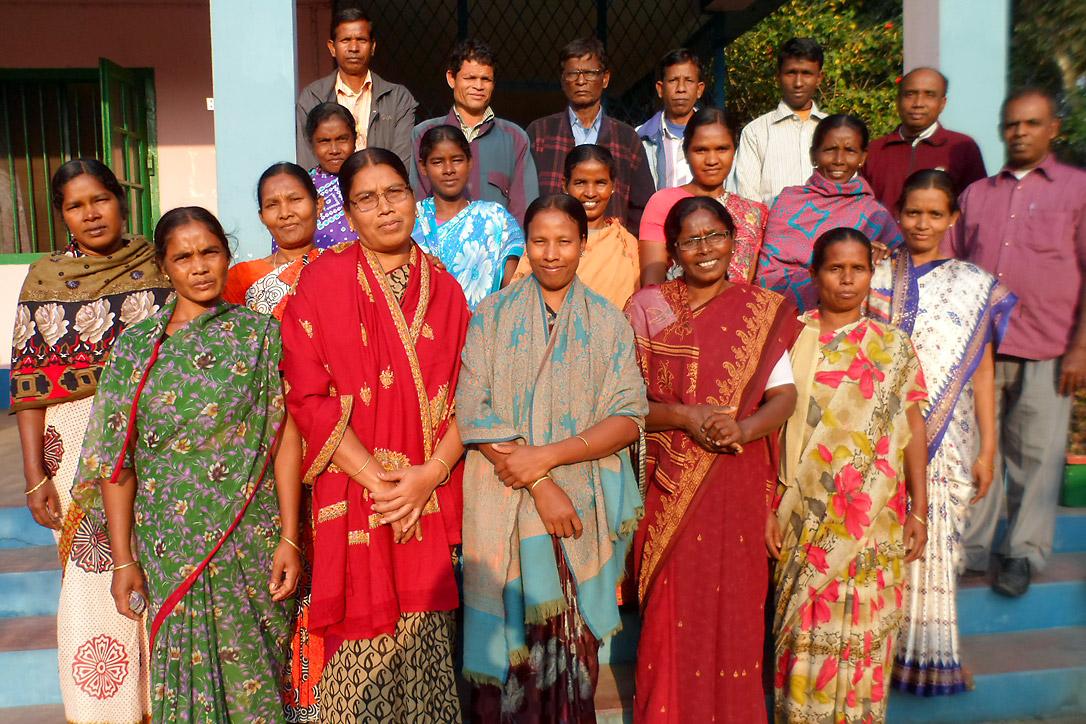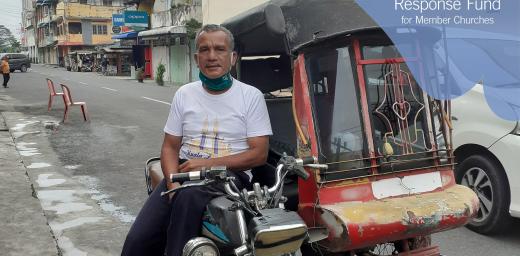More than 100 LWF scholarship graduates

LWF churches confirm that graduates contribute to spiritual and social change in communities. This group of members of the Bangladesh Northern Evangelical Lutheran Church recently completed a course on Lutheran understanding and practice. Photo: LWF
Program makes “significant contribution” to churches
(LWI) – Theologians from Malaysia and Rwanda, a diaconal worker specializing in HIV and AIDS from the Democratic Republic of Congo, and an education administrator from Colombia are among 101 candidates who achieved degrees and other professional qualifications through The Lutheran World Federation (LWF) training support last year.
The graduates included nine with doctoral degrees, 11 with masters’, 54 with bachelors’, and 27 with specialized diploma certificates from 30 LWF member churches in Africa, Asia and Latin America and the Caribbean (LAC). Most pursued training in public universities, theological seminaries and other tertiary institutions in their home or neighboring countries.
“This is a significant contribution to the member churches’ capacity for holistic mission,” said Rev. Dr Fidon Mwombeki, director of the LWF Department for Mission and Development through which the program is coordinated.
The Human and Institutional Capacity Development (HICD) training support for church leaders, theological educators and diaconal practitioners is aimed at improving the holistic ministry of LWF member churches. Of last year’s graduates, 62 studied different fields of church social development work (diakonia) while 39 completed studies in theology.
This is a significant contribution to the member churches’ capacity for holistic mission.
Candidates’ training is based on church needs. Upon graduation, most of the professionals return to serve their churches in different capacities, or contribute to church work while employed elsewhere.
HICD program coordinator, Abebe Yohannes Saketa, said recent evaluations show that over 1,400 people (679 in theology and 737 in diakonia) were trained through LWF scholarships between 2005 and 2014. Reports from member churches indicate that those trained are contributing to the spiritual and social transformation of communities in diverse contexts, he added.
The LWF approves between 60 and 80 church-recommended scholarship applications for different fields of study each year. There were 260 candidates pursuing studies in various fields last year.
In addition to the scholarships, the HICD program runs training workshops across the LWF regions targeting church leaders, theological educators, diaconal workers and women and youth ministry focal people. Last year, more than 100 participants from 21 member churches (Africa 12, Asia 4, and LAC 5) participated in four workshops held in Cameroon, Kenya, Nepal and Nicaragua.
“During screening and selection of candidates for further training support, we make a conscious effort to strengthen the link between the LWF strategic objectives and the pressing needs of the member churches, in order to respond to many local issues such as conflict transformation and peace building, leadership development, diaconal management, and alleviation of poverty and economic injustice,” said Saketa.
Bread for the World and the LWF German National Committee provide funding towards scholarships for theological and diakonia training.





